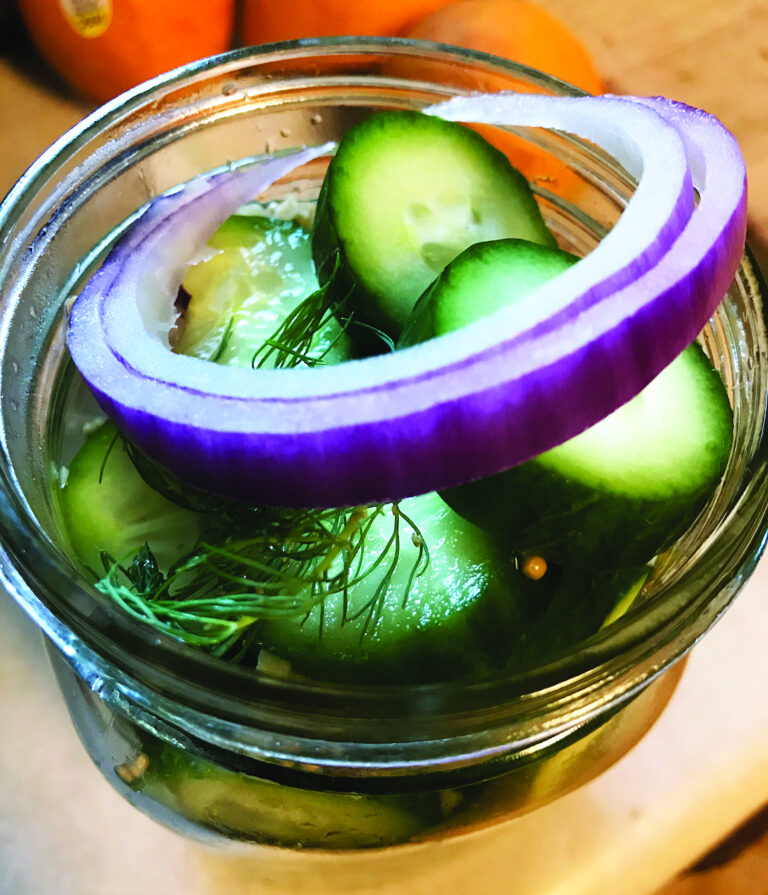The Low-Carb Craze Gives Way to Low-Carb Sanity
When Alibi first wrote about low-carb diets in 2000, conventional wisdom said that Dr. Atkins was a quack and people who went low-carb were taking their lives in their hands. Of course, back then the big story was that you could eat all the bacon cheeseburgers you wanted, as long as you skipped the bun. Since then, low-carb has become so mainstream it's no longer a topic of conversation. Every convenience store stocks low-carb beer, restaurants all advertise Atkins specials and grocery store shelves are full of products catering to low-carb dieters. Over the course of the year, we seemed to reach the full height of diet insanity (low carb Doritos? Please!) and simultaneously get a grip on reality. Few people we know are doing the all-bacon-cheeseburger diet anymore, and even fewer still indulge in fettuccine Alfredo for lunch.
Building a New Pyramid?
The Department of Agriculture's Center for Nutrition Policy and Promotion spent the better part of 2004 reassessing the familiar food pyramid, which hasn't been changed since 1992. They did a review of the latest scientific data, asked for public opinion and talked about redesigning the way the information is presented (as in: Maybe the pyramid idea is dumb?). It's expected that the new pyramid, due in early 2005, will show a lower recommended amount of carbs, and make a distinction between whole and refined grains. The safe money says the feds won't go making any big changes like putting steak on the bottom and pasta on the top.
Super Size Me!
We laughed, we cried, we almost puked our guts out. Morgan Spurlock, some guy from West Virginia who looks like your sister's not-too-bright new boyfriend, won Best Director at Sundance Film Festival for this documentary chronicling the 30 days he spent eating nothing but McDonald's. He barfed, he gained 30 pounds, his (vegetarian!) girlfriend complained he'd lost his sex drive, and his doctors begged him to quit after tests revealed the experiment was making him sick. We all watched in horror and amusement as Spurlock made McDonald's look like the al Qaeda of the restaurant business. Parents everywhere felt like child abusers for giving their kids chicken McNuggets and six weeks after the film's premiere, Mickey D's eliminated all of their Supersized menu items. Many cite the film as a reason for increased scrutiny of school lunches; Spurlock has launched a nationwide tour of schools, speaking about childhood obesity. In the meantime, Supersize Me became the fourth highest-grossing documentary film in history.
Wait, How Much is a Serving of Mac ’n' Cheese?
Somehow, Kraft found itself painfully ahead in the combat-fat game. After announcing a string of anti-obesity initiatives in 2003, Kraft canned the idea of labeling boxes of macaroni and cheese as single-serving (which radically ups the amount of fat and calories in a “serving”). Why? “Different people have different body sizes and activity levels,” Kraft spokeswoman Kris Charles said in a June of 2004, “and it made more sense to provide different portion choices.” Sounds like the truth was hurting sales. Uh-oh.
So Sue Us. (Or Rather, Don't Bother Trying To Sue Us Because We Already Paid Off Congress to Prevent You From Doing Anything)
The big guys in the restaurant industry aren't stupid and they could see what was coming: a series of lawsuits against fast food manufacturers that would make the tobacco settlements look like they'd been paid with Monopoly money. In March 2004, the “Personal Responsibility in Food Consumption Act” (also known as the “cheeseburger bill”) easily passed through the House of Representatives. The Senate is still digesting the bill and it has yet to come up for a vote, though without much public outcry, it seems sure to pass there too.
This Product Was Manufactured in a Plant That Also Processes Peanuts
Congress did manage to pass the Food Allergen Labeling and Consumer Protection Act, which President Bush signed in to law in August. The law requires food companies to clearly state, on their packaging, whether a product contains peanuts, tree nuts, milk, eggs, fish, shellfish, wheat or soy. The point is that, until now, kids had a hard time deciphering ingredient lists and ended up eating food they were allergic to and going into anaphylactic shock. Very uncool. So now a second-grader who's allergic to peanuts will be able to look at a candy bar package and easily figure out if it will kill him or not. Nice work, Washington.
We're All Going to Die From Obesity (Maybe)
It seemed clear enough to us. In March, the Journal of the American Medical Association (JAMA) published the results of a study, done by the Centers for Disease Control and Prevention (CDC), that showed obesity would soon overtake smoking as a preventable cause of death. Six months later, The Wall Street Journal reported that they found statistical errors in the CDC's report. OK, maybe there were statistical errors, but the big story here is that two-thirds of the country is officially obese and this obesity is already the second-leading cause of death. The questions dogging this study are about how fast obesity is gaining on smoking. Who cares?
Julia Child, America’s First Lady of French Cuisine, Dies at 91
Before the Food Network and its celebrity chefs, before the convenience of specialty shops like Williams and Sonoma, there was just Julia. Here was a woman known as much for her distinctive voice—one that Jaques Pépin once described as a “trilled warble”—as the food she made. And at six-foot-two, she was built more like a linebacker than domestic nymph. But more than anything, it was her warmth and enthusiasm that held people’s attention. It’s no accident that her cooking show, “The French Chef,” went on to become the longest running program in the history of public television. Julia didn’t promise perfection, 30-minute meals or quick fixes. She just got you really excited about food. So what if the soufflé fell or her croquembouche was a little crooked? She gave us courage—or at least hope—that we, too, could cook intimidating French food. Julia died just one day shy of her 92nd birthday. And after inspiring two generations in at least as many countries, we are all left wondering: Who could fill the shoes of such a giant woman?
Sugar Goes Sour
The sugar business was anything but sweet for shareholders in 2004. For the third year in a row granulated sugar sales declined, this time by as much as four percent. It seems that people are fed up with refined sugar’s less-than-tempting reputation for plumping up the waist line. Instead, consumers are looking elsewhere to satisfy their cravings: With nearly 1,000 new low-sugar products introduced in 2004, there’s no shortage of companies eager to jump on the sugar-bashing bandwagon. Among them, General Mills made headlines when they reduced the amount sugar in Trix, Cinnamon Toast Crunch and Cocoa Puffs—by 75 percent. Meanwhile, sales of the newest and hottest sugar substitute, Splenda, shot up so quickly that the manufacturer couldn't keep up with demand from food processors interested in using Splenda in their products. Oh, well. “Pour some calorie-free sweetener on me” just doesn’t have the same ring to it.
“The Coca-Cola of Milk” Down the Drain
As the dust begins to clear, one thing is for sure: Calisto Tanzi will be going away for a long, long time. Tanzi was the founder and 51 percent owner of Parmalat, Italy's largest food company, which collapsed in a corporate scandal that dwarfs the messes made Enron and WorldCom put together. News of Parmalat's bankruptcy hit in the last weeks of December 2003, and the nearly unbelievable story continued to unfold through 2004. Faked bank accounts that supposedly held millions in assets, dozens of made up offshore companies with names like “Black Hole”, secret flights to Ecuador and rumors of hidden treasure, blame flying like bullets in a Mafia shootout. As he was hauled in to an Italian prosecutor's office in January, Parmalat's chief financial officer greeted reporters with this line: “I wish you and your families a slow and painful death.” But it seems that the Parmalat story is the one that only gets more and more gruesome without signs of abating. A fat handful of multinational corporations are all suing the crap out of each other while small investors get screwed. Typical. When court proceedings began in Milan, Italy on Oct. 5, there were so many lawyers present that they couldn't all fit in the same courtroom. Outside, enraged protesters clogged the street.








